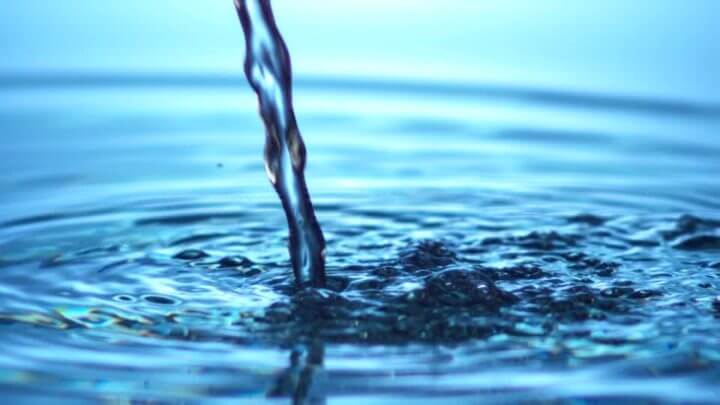Did you know that, as time goes by, people’s life expectancy increases dramatically? Just a century ago in the UK, life expectancy for women was 59 years (55 for men), and in times before that life expectancy was not much higher.
Currently, more and more countries whose average life span is estimated to be close to 90 years. This fact has motivated many older people to actively participate in sporting events. However, something very important to take into account for these people is that their needs and care to take are very different from people of average age. In this sense, one of the most important factors is changes in hydration.
Find out how hydration needs change in older athletes.

3 changes in hydration of the elderly
There are three changes in particular that have a great impact on the water reserve in our body, and of course, the way we hydrate. These are as follows:

1. Your body contains less water
The water in our body is stored in each of the cells that make us up, precisely in what we know as the intracellular compartment. These compartments are responsible for maintaining the necessary water that our body needs to function properly , as well as being very useful when we exercise, since it helps us keep cold by sweating
One of the places where our body stores more water is in the muscles, since the cells of which these are formed are capable of storing more water than others. However, it comes as no surprise to say that when we get older, our levels of muscle mass decrease dramatically, so the amount of water that makes us up is also reduced.
Specifically, different studies indicate that between the ages of 20 and 80 our body loses about 4 to 6 liters of water that were normally part of us. This makes it easier for an elderly person to become dehydrated during workouts, compared to a younger person, so the water consumption in the sessions must be increased to avoid this problem
It should be noted that some exercises (such as weight lifting) help greatly to reduce the amount of muscle mass that we lose during our aging; however, this is only up to a point and can never be completely avoided

2. The amount of water that is discharged through the urine increases
From the age of 60, our kidneys stop working in the optimal way that they did years ago, this causes them to produce less concentrated urine and the amount of water it contains is much greater. In other words, the water we drink is not retained by our body in the same way and a greater part of it is not used by our body.
A recommendation to counteract this effect of aging is to accustom yourself to drinking a greater amount of water per day, especially before and after each workout, as a way to stay properly hydrated without worries.

3. The feeling of thirst is reduced
This is perhaps the most shocking change of all. In older people, the feeling of thirst is severely affected . This means that older people stop worrying about the amount of water they consume on a daily basis (since in theory, their body does not ask for it as often as it did previously). This increases the risk of dehydration, since we stop consuming the amount of water to which we were previously accustomed.
This is a problem that must be solved on your own. A good measure would be to establish water consumption schedules at different stages of the day, as well as drinking water upon waking, before and during each meal and of course before and after each training session.

How to avoid dehydration in elderly athletes
1. Take into account that you should start drinking more water
As we have seen previously, our body changes a lot as we age, and accepting that we are getting older is one of the most important things to think about when we are already around 50 and 60 years old.
Thus, leaving hydration aside is a serious negligence, especially when the habit of training regularly is still maintained. Dehydration can bring many problems to our health, so monitoring the amount of water we consume (and if necessary, increase it) is a good start to avoid this problem.

2. Start consuming a little more sodium with your diet
Sodium helps us strengthen the walls of our cells’ intracellular compartment , which can go a long way toward increasing the amount of water our bodies retain. This will imply an improvement in our blood pressure and also in our performance during training
We can achieve this by adding a little more salt to our meals, or by consuming sodium supplements in our beverages. In addition, a higher sodium intake will increase our feeling of thirst , which will urge us to consume more water.
Conclution
Big changes in our body occur when we get older, and these require us to slightly change our lifestyle to maintain the healthy life to which we are accustomed. This is highly reflected in hydration, which we cannot neglect at any time, especially when a certain age is reached, because we are more susceptible to dehydration .
References
- Blow, A. 3 Ways Your Hydration Status Changes As Your Age. For Trainingpeaks. [Revised March 2018]
